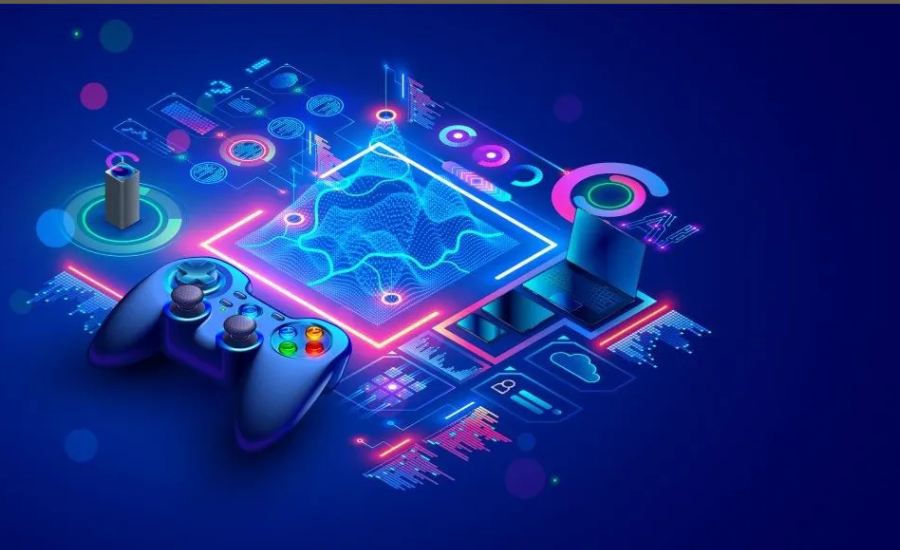The world of video games has always been a breeding ground for creativity and cutting-edge technology. From the pixelated pioneers of the past to the immersive virtual worlds of today, games have consistently pushed boundaries and redefined entertainment. Now, a new wave of innovation is poised to reshape the gaming landscape: blockchain technology.
Blockchain, the secure and transparent distributed ledger system initially associated with cryptocurrencies like Bitcoin, is finding fertile ground in the gaming industry. Its core principles of decentralization, immutability, and security offer exciting possibilities for game developers and players alike. Let’s delve deeper into this fascinating intersection of blockchain and games, exploring how this technology is transforming the way we play.
1. Ownership Revolution: Empowering Players Through NFTs
One of the most significant changes driven by blockchain in gaming is the concept of true ownership of in-game assets. Traditionally, players spend real money on virtual items, but these items remain confined within the specific game’s ecosystem. Blockchain, with its implementation of Non-Fungible Tokens (NFTs), disrupts this model.
NFTs are unique digital tokens that represent ownership of digital assets. When applied to games, these tokens can represent in-game items like weapons, armor, skins, or even virtual land. Owning an NFT grants players verifiable proof of ownership and the freedom to trade these assets on secondary marketplaces outside the game. This empowers players and unlocks a new level of economic participation within the game world.
Imagine earning a rare weapon in your favorite online game and being able to sell it on a secure marketplace for real-world value. Or, picture owning a piece of virtual land in a metaverse game and profiting from its development or renting it out to other players. This is the power of NFTs within the blockchain and games space.
2. Play-to-Earn: Redefining Rewards and Engagement
Blockchain technology is also fostering the rise of “play-to-earn” games, a model that incentivizes players through cryptocurrency rewards. These games allow players to earn crypto tokens for completing quests, participating in battles, or achieving milestones. These tokens can then be used within the game’s economy or cashed out for real-world value.
Play-to-earn games create a compelling scenario where players can not only enjoy the game experience but also potentially earn real income. This model has the potential to attract new players, especially in developing economies, where earning opportunities through gaming can be particularly appealing.
However, it’s crucial to differentiate between genuine play-to-earn games and exploitative schemes. Look for games with a well-developed economy, sustainable tokenomics, and a focus on fun gameplay rather than just grinding for rewards.
3. Decentralized Governance: Shaping the Future of Games
Blockchain’s decentralized nature opens doors for player-driven governance within games. Decentralized Autonomous Organizations (DAOs) can be established to allow players to collectively influence the game’s development. Through token voting mechanisms, players can participate in decisions ranging from new content creation to in-game rule adjustments.
This shift in power from developers to players fosters a sense of community ownership and deeper engagement. Players become active stakeholders in the game’s future, creating a more collaborative and potentially player-centric gaming experience.
4. Transparency and Security: Building Trust in the Gaming Ecosystem
The inherent transparency and security of blockchain technology can significantly improve trust within the gaming ecosystem. By storing in-game assets and transactions on a public blockchain ledger, players gain verifiable proof of ownership and transaction history. This reduces the risk of fraud, duplicated items, or hacking, creating a more secure environment for players.
Furthermore, blockchain can enhance the fairness of competitive games. Immutable transaction records can ensure that gameplay mechanics remain consistent and prevent cheating or manipulation. This fosters a more level playing field for all participants.
The Road Ahead: Challenges and Opportunities
While the potential of blockchain in games is undeniable, challenges remain. Scalability issues, complex user interfaces, and the volatile nature of cryptocurrency markets are some hurdles that need to be addressed. Ensuring regulatory clarity and developing user-friendly interfaces are critical for broader adoption.
However, the gaming industry’s inherent adaptability and willingness to embrace new technologies create a fertile ground for blockchain innovation. As developers experiment with creative applications and communities adapt, blockchain has the potential to redefine the way we experience and interact within games.
In conclusion, the intersection of blockchain and games is a captivating space brimming with exciting possibilities. From empowering players through NFT ownership to fostering player-driven economies and fostering trust, blockchain technology has the potential to reshape the gaming landscape. While challenges exist, the innovative spirit of both industries paves the way for a future where blockchain truly transforms the way we play.
Don’t miss the latest updates and alerts visit: Discover Tribune!




